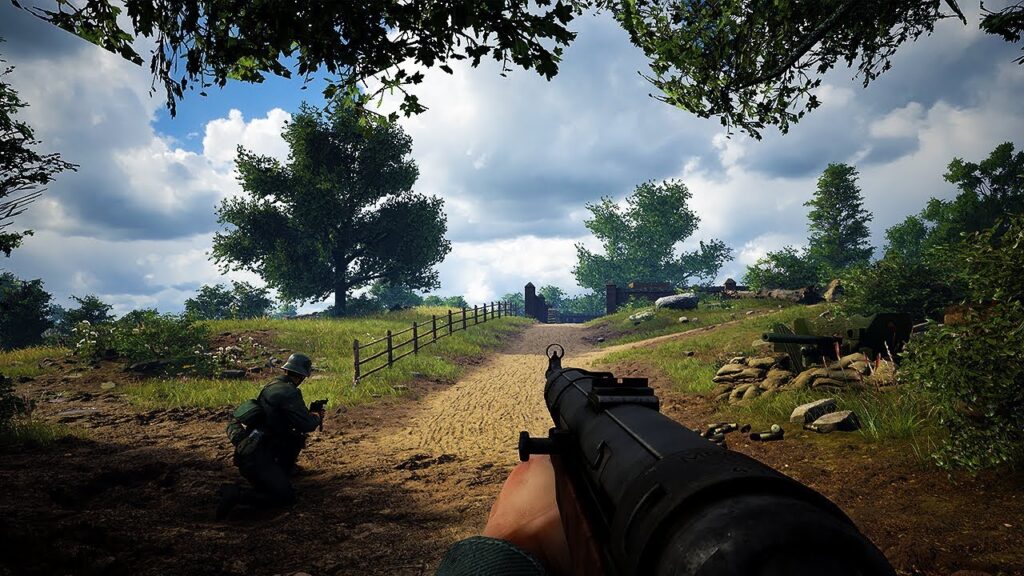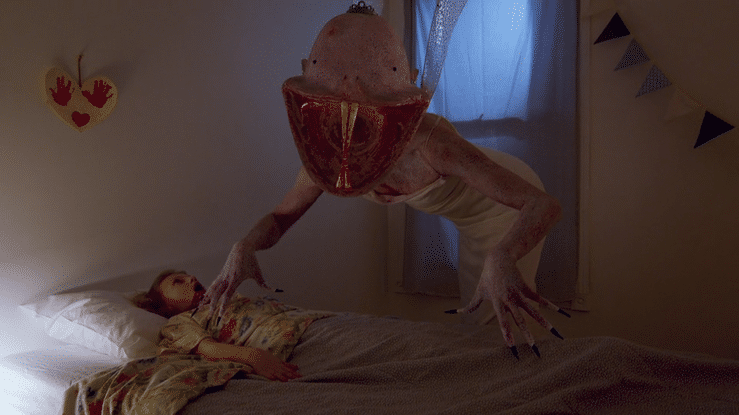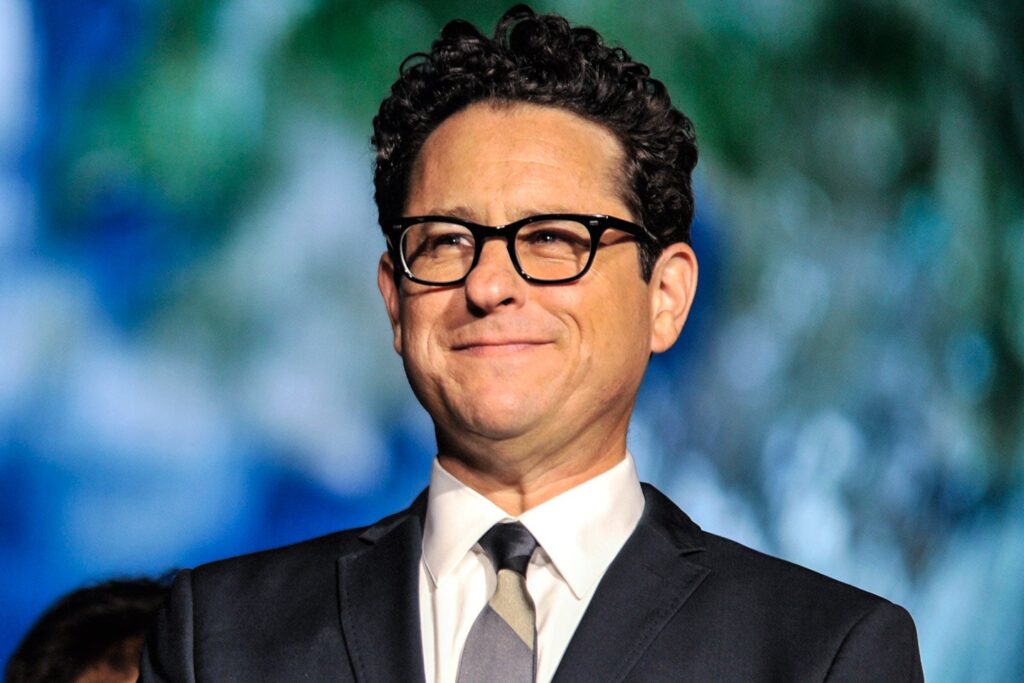No post today. You’ll just have to enjoy the Newsletter. That’s IF YOU GET the Newsletter. And if you don’t get the newsletter, I’d highly recommend that you sign up because we’ve got a whopper for you today. I review a screenplay that JJ Abrams is involved in that is trying to do something that’s NEVER BEEN DONE IN HOLLYWOOD BEFORE. To say that he’s trying to change the very fabric of Hollywood is an understatement. The best thing about the review is I tell you whether he’s going to succeed or not.
I also talk about the DC slate that James Gunn laid out, which I think is awesome. I then discuss the Oscar screenwriting nominees. Things get heated when I start discussing Banshees vs. Everything Everywhere. We’ve got two GREAT screenwriting tips. Some of the most valuable I’ve ever offered in the newsletter. We’ve got a couple of Star Wars cameos. One in relation to JJ and another in relation to an actor whose career was thought to have been destroyed by the franchise who’s made a comeback in, what is shaping up to be, the best movie to come out of Sundance.
So, yes, there’s a lot to talk about!
And if you’d like me to send you this newsletter right now, e-mail me at carsonreeves1@gmail.com!
Genre: Action/Adventure
Winning Logline: When a lonely kid gets lost in a next-gen VR gaming experience, the only person who can rescue him is his mom, who’s never played a videogame in her life.
About: Today’s logline won the first ever Scriptshadow Logline Showdown. If you want to compete in the next Logline Showdown, get your title, genre, and logline into me by Thursday, February 16th at 10pm Pacific Time. I will pick my five favorite loglines from the entries. Readers of the site will then vote for their favorite and the script will get a review on the site the following Friday. All entries need to be sent to carsonreeves3@gmail.com.
Writer: David Laurie
Details: 99 pages

Yeah baby!
You’ve seen it in the comments.
You’ve seen it in the Showdown.
Now, you see it reviewed on the site.
CALL OF JUDY!
13 year old Brooklyn kid, Bop Tan, a Chinese-American, is lucky that he has gaming. Because his life is pretty sucky. His mother and father are divorced. His mother is always working (as a janitor at a superstore). And he gets chased by bullies every day.
Luckily, Bop has been invited to a big launch event for Virtue-Ally, a top tier virtual reality game world that’s going to revolutionize the industry. At least according to its CEO, Oswald Merriweather.
As Bop reminds us, this is the most important day of his life. Which is why, for once, his mother, Judy, is going to move mountains to make sure she gets out of work early and can attend.
The event takes place in a blocked off street with a big black pyramid in the middle and thousands of screaming gamer fans outside. There is a big screen that allows for the crowd too see what’s happening inside the virtual game.
But when Judy gets to the event, she can’t find her son. So she stumbles into the pyramid (I’m not sure how she was able to get in while the thousands of screaming fans were not) and, after some smoky theatrics, she finds herself plummeting onto a World War 2 battlefield, where she meets three English soldiers, Tom, Dick, and Harry.
Judy just wants to find her son. But Tom, Dick, and Harry say they’ve got more important matters to take care of – namely eliminating a gun nest at the top of a hill. Judy tries to tell the soldiers that they’re in a video game but they don’t seem to know what a video game is.
After several dust-ups with the enemy, Judy and Harry get transported to a different game, this one a three-dimensional side-scroller that’s a virtual take on “Don’t Fall In The Lava.” At this point, an injured Harry starts to understand that he’s not in Normandy anymore. But he still doesn’t really know what’s going on.
It’s there that Judy meets Duck, a cute little toy bunny, who’s seen Bop. They travel up and up higher through the levels until they make it to the next porthole, which brings them into Crime City, a sort of Grand Theft Auto meets Fortnite game. There they have to deal with a psychotic guns-obsessed female villain named Amy.
After somehow surviving her, Judy finally finds Bop and they go home. Or do they? They realize that the last level is actually a virtual mirror of the real world, and Judy will have to take down the people in her life she hates the most, her ex-husband and her boss. Thank God she has her son’s game expertise to help her do it.
First of all, I want to congratulate David on winning the first ever Scriptshadow Logline Showdown.
I also want to scream at him because, after reading this, I now want to buy a game system.
As for the script, I thought some of the set pieces were fun. But I had a tough time getting into this story. Full disclosure, I’m short on time so, if I didn’t understand something, I just kept reading. I didn’t go back and try and figure it out.
For anyone crying foul about that, I have bad news for you. This is how everyone in Hollywood reads scripts. If they’re not clear on something the first time through, they don’t go back and re-read.
But, in fairness to David, if anything was unclear to me, he may be able to point out that it was, indeed, explained at some point.
My main issue with the script was the first act. It’s hard to follow. Bop is going to this video game event but it’s mostly shrouded in mystery. We don’t really understand it. We just know it’s important on some level to him.
We then have Judy, who, I believed, was coming to this event to see her son perform in the game. However, when she gets there, she sort of stumbles inside the pyramid structure that’s the center of the event, looking for Bop.
Once inside, the place fills up with smoke, and she’s sent into the virtual reality game without explanation. Once she lands in World War 2, only then do we start to put two and two together and realize that the creator of this virtual reality purposefully trapped Bop in the game so that Judy would have to find him.
It’s kind of hard to understand because I don’t know how Oswald knew Judy would come and why he concocted this plan by which he makes a mom find her son. It seems very random. I mean, he’s the head of a trillion dollar company. Isn’t he more worried about selling millions of systems?
This felt like it needed a clearly defined “lost child” scenario. Bop goes and beta tests this video game for Virtu-Ally. To Oswald’s shock, Bop gets lost in the game and they can’t find him. They look but he’s nowhere to be found. Finally, they have no choice but to inform Judy. And maybe Oswald thinks that the only person who’s going to be able to find him is the mom. So he asks her to go in.
It’s much simpler.
The vagueness through which this journey begins basically kills the script before it gets started. Cause if the “how” of the journey is confusing, the audience is going to decide then and there that they’re not going to go on the journey with you.
Once on the journey, we run into more clarity problems. In fairness, this might be because I was not re-reading anything, as I discussed. But the second we land inside World War 2, we’re told that we have to get up to the top of some hill and take out a gun or something. I didn’t really understand what we were doing.
I’m not even sure I knew that Janet knew that the reason she was placed in this game was to find her son. She stumbles into that pyramid and then, bam, she’s in World War 2 for some reason. Nobody sits her down and clearly explains what’s going on, making the narrative confusing to the viewer.
While this is happening, we’re cutting back to Oswald and his two main programmers, and Oswald seems very determined to give Judy the best game experience possible. Which further confused me. Is this movie about a man trying to show our heroine how to enjoy video games? Or is it about a mom trying to rescue her son in a video game? If I were quizzed on this question, I would probably get it wrong.
And then we have Bop himself. Is he in danger? Can he potentially die? I never got the feeling he could. And if the stakes aren’t that Bop could die, I don’t think there’s a movie here. If Bop isn’t truly in danger, then why does Janet need to go looking for him? Go home, wait for Bop to get bored in the game, he’ll come home and you guys can order pizza.
99% of the time, when there’s a problem with a script, it’s in the setup. Something in the setup destroys the reader’s suspension of disbelief. And that’s what I would say happened here. The lack of clarity of what was going on and why Judy needed to enter this game took me out of the script. It had me asking questions left and right.
My biggest note to David, then, would be to have a “HERE’S THE PROBLEM AND HERE’S WHAT WE NEED YOU TO DO” scene at the end of the first act. Think about when the CIA comes to Indiana Jones and tells him about the Ark. We need THAT kind of scene here.
Oswald comes to Judy. He explains that her son is lost in his new game (the PROBLEM). He’s sent people after him but they can’t find him. So, he believes, the only person who can find him is his mom. Which is why he’s come to her. He wants her to go in the game and retrieve her son (“Here’s what you need to do.”).
I also think there needs to be a bigger mom-son conflict here. Similar to the mother’s conflict with her daughter in Everything Everywhere All At Once. Cause, basically, this should be a “runaway” narrative. The son is sick of his mother. So he runs away. The difference is, he runs away in the virtual world instead of in the real world.
That way, this isn’t just about physically finding her son. It’s about fixing years and years of a broken relationship. It’s about truly finding her son, as a person. There’s a little bit of that here, but the whole thing about “Mommy won’t play video games with me” isn’t enough.
One of the ways to look at screenwriting is it’s not just that one day you learn how to wrote a great script. It’s a process. The first stage of that process is learning how to write a first act. Which is challenging because you have to set up your plot, set up your characters, you have to do so in an entertaining way, and then you have to do so with clarity.
Once you learn how to write first acts, you have to learn how to write a second act. That’s its own challenge. You have to learn to escalate the story and keep throwing new and interesting obstacles at your hero, as well as explore the central character’s arc.
Once you figure that out, you have to learn how to write a third act. The hardest thing with the third act is that your story charges towards this obvious inevitable conclusion. Yet you must find a way to still make that compelling. We all know that Liam Neeson is going to find his daughter. But how do we still make that exciting?
At least based on this script, I think David still needs to learn how to nail the first act. It’s just not there. Basic things like clarity are not on point. Hopefully, I’ve given him some ideas on how to improve that. And I’m sure everyone here in the comments will offer equally helpful advice.
Congrats again to David for winning. You can read the screenplay here!
[ ] What the hell did I just read?
[x] wasn’t for me
[ ] worth the read
[ ] impressive
[ ] genius
What I learned: “Passers-by flicker HORROR at his face.” Be careful about trying to be too clever with your writing. It feels good in the moment. But the only thing that matters in the end is clarity. If we don’t understand what you mean, we’re distanced from your story. “Passers-by flicker HORROR at his face.” What does that mean? I don’t know. If you ever run up against a potentially complicated description, write out the line like you’re writing it for a second grader and then, if you need to, make minor adjustments from there. “As he walks down the street, people stare back at him, horrified looks on their faces.” We understand that sentence, right? So why change it? Why make things harder on ourselves?
You may not have asked for it. But you’re sure as heck getting it. Another Star Wars article! (Hey, at least this time I tied it to screenwriting)

The Mandalorian Season 3 is just around the corner. And the most recent trailer has gotten me thinking about Star Wars.
I actually liked the trailer. As of today, The Mandalorian remains the closest we’ve gotten to Lucas’s original vision since Disney took over Lucasfilm. And a big reason for that is that Jon Favreau and Dave Filoni understand something about Lucas that many of these other people who have gotten Star Wars movies and shows don’t have a clue about.
Whimsy.
“Whimsy” just means playful, quaint, fanciful humor. It’s a surface-level component of storytelling. There’s no deeper meaning to it. But the more you watch Star Wars, the more you realize that whimsy is its secret sauce.
A perfect example of whimsy is the MSE-6 mouse droid, the thing that scoots away in the Death Star when Chewbacca roars at it. Another would be the giant frog creature outside of Jabba’s hut that snaps up kitten sized creatures with its tongue.
These things don’t have any deeper significance to the story. But they subconsciously make the world feel richer, which, in turn, tricks the mind into thinking these alien civilizations really do exist. Not to mention, they add that element of weird fun that differentiates Star Wars from all the competition.

It’s why you get the shot of Salacius B. Crumb’s cousin up there in the tree in the newest Mandalorian trailer. These guys understand the importance of Lucas’s obsession with whimsy.
But The Mandalorian is still Star Wars Lite. Which is scary when you consider that it’s the best thing Star Wars has to offer post-Disney acquisition.
Why do I call it “Star Wars Lite?” Because what are the stakes? They used to be getting Baby Yoda to safety. But they got him to safety, and apparently, safety gave him back. So what’s so important about this latest journey? I’m sure the writers will come up with something. But stories never work well when you have to add stakes retroactively. The stakes need to be baked into the concept.
This is what made the original Star Wars! Stakes. There was a planet-destroying moon run by an evil Emperor going around the galaxy blowing up planets. How do stakes get any bigger than that?
That’s been a curse Star Wars has been unable to outrun. They’ve had to consistently come up with stakes that match or exceed the Death Star. And so far, they’ve failed.
Indeed, it is why Obi-Wan was such a dud. At least The Mandalorian could claim that Baby Yoda was the secret to the future of the Force throughout the galaxy. The only stakes in Obi-Wan seemed to be to get an annoyed Baby Leia back home before dinner.
Yet another reason Star Wars continues to flounder is the archetype problem.
For those who don’t know, George Lucas built the original Star Wars around Joseph Campbell’s, “The Hero’s Journey.” It’s actually quite astounding the way that material inspired him because he basically wrote the original Hero’s Journey and just crossed out the characters’ names and replaced them with Luke Skywalker and Darth Vader. It’s a reminder of how getting the right inspiration at the right moment can be the key to writing something great.
But the thing about The Hero’s Journey is that each character plays a very specific role. There’s the hero, there’s the mentor, there’s the trickster, there’s the guardian. Those characters are constructed to fit a very narrow purpose in the story. The mentor, for example, is there to offer guidance and wisdom to the hero.
Therefore, when you try and extrapolate these smaller side-characters into their own shows and movies, with these bigger storylines and larger character demands, it never quite works. Maybe this is a weird analogy but I just made cookies last night, so go with it – it would be like making cookies, only for you to realize after you cooked them that you forgot to add sugar, so you then went and sprinkled sugar all over the cookies. No matter how much sugar you add, they’re not going to taste right.
The Boba Fett show bumped up against this issue head on. Boba Fett was Star Wars’s biggest bada$$. And that’s exactly who they showed us in the teaser for the show at the end of The Manadlorian Season 2. They showed Boba Fett walk into Jabba the Hutt’s palace, heartlessly shoot his successor, Bib Fortuna, then take the throne.
It was the perfect representation of Boba Fett’s archetype. But when they actually had to make a show, and spread Boba Fett’s plotline over six episodes, having a ruthless cold-hearted killer didn’t work anymore. They had to make him softer. So that’s exactly what they did. And, in doing so, THEY MOVED AWAY FROM THE ARCHETYPE.
This is why these characters don’t work in expanded roles. Because you have to move away from the things that people liked so much about them. The same thing happened with Han Solo, albeit on a smaller scale. In Star Wars, Han Solo’s archetype, the Trickster, reveled in its edge. Of course, the character could be edgy because he only had to serve as an accomplice to the hero. As soon as you took him away from that archetype, he lost what we loved about him.
A lack of whimsy, a complex relationship with stakes, and an archetype problem, have placed Star Wars inside an iron lung machine, made it the Bubble Boy of franchises. And it looks like it’s only going to get worse from here. This upcoming Acolyte series is built around what the Star Wars community universally agrees is the worst thing about Star Wars, the High Republic Era. Ashoka is based on a cartoon character who only serious die-hard fans care about. I like Jon Watts but a show built around children (Skeleton Crew) probably isn’t going to cater to long-time Star Wars fans.
 The High Republic
The High Republic
And this says nothing about the actual feature film plan, which seems to be non-existent. Kathleen Kennedy keeps scrapping everything she greenlights because she knows the truth – that there is no Star Wars feature film plan. They screwed up the Skywalker saga. So there are no more trilogies to mine from that. Which means you have to make one-offs.
But Star Wars isn’t a one-off franchise. It goes back to stakes. If you’re making one movie in one little part of the universe, the stakes are going to be low and people aren’t going to care. Making some offbeat Taika Waititi Star Wars movie set on the bantha origin planet of CousCoux sounds fine if you’ve got two healthy garguatun trilogies running concurrently. But if The Battle of CousCoux is the only Star Wars movie you have? You’re going to lose Star Wars. You are. Cause people are going to be like, “That’s it? A fun harmless little Star Wars movie? I was expecting more.”
So what’s the solution?
This is where things get scary. There may not be a solution. Star Wars may soon end up being one of those franchises that picks at the bones of its carcasses, like The Terminators and Aliens of the world. It’s hard to write a good story period. But it’s harder to write a good story when all the good stories in your franchise have been used up.
You’ve used up your Hero’s Journey template since you’ve built two trilogies off it. So now what? Can you introduce a Mad Max like hero? Or a Tony Stark like hero? Make them the face of a trilogy? I don’t think you can. Star Wars, at its heart, is about wonder. It’s about having these outsized dreams of doing something bigger with your life, like Luke Skywalker wanting to fight for the Rebellion. And that requires a younger “stars in their eyes” protagonist.
I know one thing for sure, though. You gotta stop making TV shows. Star Wars is using television to ignore the elephant in the room, which is that Lucasfilm is terrified to make movies. They’re terrified because they know if they screw up two more times, Star Wars, as a top tier franchise, is dead. Lucasfilm knows they can better hide failures on the TV side, which is why they keep making all these shows.
But sooner or later, they have to make movies because Star Wars IS A THEATRICAL FRANCHISE. Movies = high stakes. Playing in television is like playing in the kiddie pool. It’s fun and it’s safe. But you’re just treading urine-infested water.
So I’ll ask you again, what’s the solution?
You need to go back to the source. The source is The Hero’s Journey. But since you can’t do a Hero’s Journey anymore, you have to go back even further, to the things that inspired The Hero’s Journey. We’re talking about the wide range of cultural myths and legends from ancient Greece, Hinduism, Buddhism, and Native American cultures, that gave you those story components that make up The Hero’s Journey.
A good example is the Star Wars video game, Knights of the Old Republic, which is basically a take on Cain and Abel. Two brothers were raised and each one went off on a different path, one to the Dark Side and the other to the Light. I could see a franchise being built around this dual-protagonist rivalry between brothers. And it would work because its bones are built from the same matter the original Star Wars was built from.

But, look, nobody said this stuff was easy. If I could easily come up with a great Star Wars idea, I’d be busy writing the next Star Wars movie for Lucasfilm (assuming they could get over me ripping them all the time). But I do think the Star Wars franchise needs to be built on top of a feature spine. It’s not a small potatoes franchise. It can have TV shows, but they should be supplementary, not the whole shebang.
You can dance with the TV devil for another year or two. But sooner or later, this franchises collapses if you don’t put a trilogy out there.
Genre: Horror
Premise: A drug addict returning from rehab kidnaps her daughter from her father then tries to skip town, only to end up at an old BnB chased by an evil tooth fairy determined to take her daughter from her.
About: This script finished in the bottom 25% of last year’s Black List. Chris Grillot had one other script on the Black List several years ago called “Bella.” Grillot is using his former job as a crime journalist in New Orleans as inspiration for much of what happens in today’s script. Except for the tooth fairy demon stuff, I’m assuming.
Writer: Chris Grillot
Details: 100 pages on the dot!

It’s been a while since we’ve reviewed a horror script on Scriptshadow so I thought, let’s bring the site back into equilibrium.
There have actually been some cool horror films that have come out lately. We had M3gan. We had Barbarian. We had Smile.
What I like about horror is that it’s very flexible tone-wise. You can take the exact same premise and construct three very different experiences depending on the tone you choose. While older viewers dismiss the genre as a jump-scare fest, you can write some pretty dramatic horror movies. Which is definitely what we get today.
29 year old drug addict, Celia, has just finished her latest court-ordered rehab. Celia lives in the heart of New Orleans and on this particular night, the night she goes to get her daughter back, it’s raining like hell.
Celia picks up her 10 year old daughter, Imani, from the girl’s father. Imani has a cast on her arm. Celia knows what that means so she storms back in the house and all we hear is a gunshot. She races back out and tells Imani that they’re going to California. TONIGHT.
They don’t get very far, though. The rains are so intense that Celia’s Corolla gets stuck in 3 feet of water. The two have to practically swim over to the nearby gas station, where Celia asks the checker for a ride. He laughs at her but a couple minutes later, a local Louisiana swamp lord zooms up to the station on his boat!
The man, David, says he’s got a B&B down the street and Celia can stay there the night then get their car fixed tomorrow. Without any other options, Celia is forced to accept and, oh yeah, the home also happens to be an Antebellum plantation! As if they didn’t have enough to worry about.
Once there, Imani’s tooth pops out, and one of the maids at the B&B, Jeanine, tells her to *make sure* she puts that tooth under her pillow tonight. Celia shakes her head. Now they’re dealing with crazy weirdos obsessed with the tooth fairy? Can this night get any worse!
But after the two fall asleep, the night does get worse. The tooth fairy creature, nicknamed “Le Feu Follet,” nearly snatches Imani. Celia storms up to Jeanine and asks her what’s up. Jeanine tells her the whole backstory of this thing, that amounts to if you don’t offer your tooth, it takes your kid.
So what do they do now?? Jeanine says they’re lucky in that all of the candles here at the home are blessed by Jesus or something. And since the tooth fairy won’t go near them, they just have to stay in the light. Except that these weak candles won’t last the whole night. Which means they have to escape.
The team gears up to make a run for it, but then the crafty tooth fairy snatches Imani away! Now, the plan changes. They have to go find the only person left in town who knows where this tooth fairy creature lives. Then Celia is going to save her daughter!
Here’s the way I look at horror scripts these days.
You’ve got your horror monsters.
And you’ve got your horror scripts.
If you’ve got a horror monster, you have to create a short film proof-of-concept.
If you’ve got a great horror premise that doesn’t rely on how your horror monster looks, then you can still get away with trying to sell the script by itself.
In other words, if you’re writing “Mama,” which is entirely dependent on how the “Mama” creature looks, you need to do a proof-of-concept short. You even need to do that for simple monsters, like the shadow monster in Lights Out.
But if you’re writing something like The Sixth Sense, that’s not a horror script where you need to put a monster on the poster. So that’s one that can get by on the script alone.
What’s interesting about Chatter is that it’s somewhere in between these two options and I don’t know if it’s good enough to get traction as a script alone. You probably need to do a proof-of-concept short on the tooth fairy creature.
With that said, the character work here is intense. And dark. This isn’t some light-hearted funzo horror movie, like M3gan.
We feel Celia’s addiction. We feel the physical abuse in her relationship, as well as the abuse from the father towards the daughter. We feel this “all hope is lost” vibe as they’re trying to start a new life. It’s intense, man!
That’s probably the script’s best quality. Its darkness. These people felt like they were genuinely at the end of their rope.
The script probably would’ve been a lot better, though, if the writer had patched up his mythology. We’re told that this creature used to steal children all the way back in the Civil War. But once word got out that it was doing so, everybody made sure to always put their teeth under the pillow.
Apparently, only one person didn’t do this in the last 50 years, and that was Jeanine, who didn’t do it for her son, which is why the tooth fairy took him. I’m trying to do the math here. How many teeth fall out of a child as they grow up? 15? Okay, now how many children have grown up in New Orleans in the past 50 years. 10 million? So we’re looking at 150 million teeth, and only once did someone not put a tooth under their pillow? I’m not sure I’m buying that.
I think a good question is, does stuff like this matter?
Does it really matter to a reader if that aspect of the story doesn’t pass muster?
It’s a good question. And the answer is, “It depends.” If I’m super invested in the characters and the storytelling and the script is really good, then I probably don’t care about it. But If I’m where most readers are when they’re reading a script, which is they think it’s pretty good and are hoping for a big exciting ending that’s going to put the script over the top. If that’s where a script is, then anything that’s shaky in the script could be the deciding factor that makes the reader give up.
That’s why details, in and of themselves, don’t matter. But taken in totality, with all the other details of the story, one lazy detail could be the straw that breaks the camel’s back.
For example, you have these candles. These candles are special god-approved candles that scare away the tooth fairy. Well, hold on here a second. These candles won’t last the night? Then what good are they? And does that mean you have to go to the church every morning to relight the candles? That seems like extremely specific mythology. Or are you saying they last for a long time but Celia and Imani just happened to show up on the night where they were running out of wax? If that’s the case, then that’s a bit coincidental, don’t you think?
Again, by themselves, these things don’t matter much. But when added up, they definitely matter. Because the reader is asking these very same questions in their mind as they’re reading your script INSTEAD OF doing what they’re supposed to be doing, which is enjoying your story.
With that said, there’s a teensy bit more good to Chatter than bad. Like I always say, get the main characters right and that will act as deodorant for many of your script’s weaknesses. I felt that Grillot got the characters of Ceilia and Imani right. And then I always love when writers take a goofy idea and treat it really seriously. It always creates an unexpected tone.
So, much like Monday’s movie review (You People), this one squeaks by with a ‘worth the read.’
[ ] What the hell did I just read?
[ ] wasn’t for me
[x] worth the read
[ ] impressive
[ ] genius
What I learned: Early in the script, Celia walks into the dad’s house. We stay outside so we can’t see anything. We hear a gunshot, we see her hurry out of the house, and then her and Imani make a run for it. However, later in the story, we learn that she didn’t shoot him. She merely fired a warning shot. I believe that the audience would rather you imply something bad DIDN’T HAPPEN only to later reveal IT DID, than imply that something bad DID HAPPEN only to later reveal THAT IT DIDN’T. Because it’s a letdown. Celia is bada$$ if she killed him. The stakes are much higher, since now they must completely disappear in order to survive the rest of their lives. Whenever something cool happens in your script and you later say, “Psyche!” the reader doesn’t like you.
Genre: Sports Thriller
Premise: A desperate cyclist and his charismatic new team doctor concoct a dangerous training program in order to win the Tour de France. But as the race progresses and jealous teammates, suspicious authorities, and the racer’s own paranoia close in, they must take increasingly dark measures to protect both his secret and his lead.
About: This script finished in the Top 10 of last year’s Black List. The writer, Haley Bartels, seems to have been destined to get to this point. She received her MFA in Screenwriting from AFI. She got a BA in English from UCLA. She studied at the Lee Strasberg Theater and Film Institute in New York. She studied at Russia’s premiere school for the dramatic arts, the Moscow Art Theater (МХАТ). She made last year’s Blood List. And this script won one of the Nicholl fellowships.
Writer: Haley Bartels
Details: 109 pages

Quoting Macbeth on page 1!
Been a while since I’ve encountered that.
This is just my own personal opinion – this is not a script rule or anything – but I have never, in my life, read a pre-story quote, in a screenplay or a novel, that has enhanced my reading experience. They seem a bit pretentious to me.
Curious to hear what you guys think about pre-script quotes. Share your thoughts in the comments. Actually, wait up! You gotta read my review first.
Taylor Mace lives in Boulder, Colorado and is a professional bike racer. Just not a very good one. He’s 35 years old and in denial about the fact that each year that passes, he’s getting worse. At the moment, he’s barely clinging to the bottom rung of the team he races for, Inverness.
Meanwhile, his best friend on the team, Duncan, is riding better than ever. He has the kind of talent that Taylor could only dream of. Actually, everybody on the team has more talent than Taylor. Taylor is a work horse. And his horse shoes are starting to splinter.
But Taylor is given a second chance when 40-something Andrea Lathe joins the team. Andrea is one of these medical sports doctors who look for ways to improve athletes by checking their blood, their heart, their entire circulatory system.
Andrea puts the team through a series of tests, including an updated version of The Pit of Despair’s death machine in The Princess Bride. No, I’m not kidding. It’s really the same device. The machine’s purpose is to determine each rider’s threshold to pain. You stay in it for as long as you can.
Taylor finishes last in every single test EXCEPT THE MACHINE. Where he crushes everyone else. He makes it an entire two minutes. Nobody else made it more than 15 seconds. His show-stopping result leads to Andrea Lathe becoming obsessed with him. In her experience, the people who win the big tours in racing are the ones who can endure the most pain.
So Lathe makes Taylor her pet project. Which also means that Taylor needs to start taking steroids. Lathe is extremely manipulative and easily able to talk Taylor into doing drugs. And as soon as Taylor does, he begins racing up the ranks within the team. By the time they get to Spain for the big next tour, Taylor is awarded the number 1 spot on the team.
But Lathe doesn’t stop there. She demands that Taylor LITERALLY give her his blood. That blood is then sent off to a secret lab where it’s super-metasticized or something, and comes back where it’s re-injected into him, turning him into a super soldier. Once on the mega-blood, he becomes unstoppable. That is until another racer on the team starts challenging him, a rider who may also be under Lathe’s tutelage.
This is a very good script.
Whenever I come into a sports screenplay, what I’m immediately worried about is cliche. Especially if it’s a racing script. I mean how much more cliche can you get than, “I’m going to win this race.” Let me guess. You’re going to be trailing with 10 seconds to go before your second wind magically kicks in and then you’re able to pass him at the turn and beat him in a photo finish.
Pumping Black is anything but cliche. Remember that movie about wrestling called Foxcatcher with Channing Tatum? This reminds me a lot of that movie. But it’s actually good. The reason it’s good is because the central relationship is really sharp.
You’ve got Taylor, who’s so desperate, at the end of his career, that he’ll do anything to win. And then you have Lathe, who’s one of the better characters you’ll read in a script all year. She’s this manipulative evil sex demon who is not afraid to use her sexual dominance to make these men do what she needs them to do.
One of the early scenes is her needing to check Taylor’s muscles so she tells him to strip. He strips down into his boxers and she says, “No, the boxers too.” Then in one of the most inappropriate scenes you’ll read in 2023, she “inspects” him.
It’s weird but it’s also one of the things that sets the script apart. Whenever Lathe and Taylor are alone, the scene is charged with this intense negative sexual energy brokered by an inappropriate power dynamic.
I liked how Bartels also drip-fed the steroids. At first, it was a just a pill. And you could’ve ended there. Only given our protagonist these pills. But the art of writing screenplays is such that you constantly want to add new things to the story. If it’s just this pill the whole time, we’ll be bored by the pill within 20 pages. So ten pages later, we introduce injections. And then 15 pages later, we introduce the big dog – blood swapping.
And what was so great about the blood-swapping was that now you’re introducing the element of death. It’s explained to us that this mega-blood gets a lot thicker, so much so that riders will set alarms to get up at four in the morning to move around to get their blood flowing so it doesn’t get clogged up in their system and kill them.
I love stuff like this. I love when you add multiple consequences and those additional consequences get bigger each time. At first, it’s just getting kicked off the team. Then, it’s possibly getting caught by the doping federation. Then, it’s death!
As I’ve told you guys before, I often judge the quality of a script on the choices that weren’t made. You could’ve easily made Lathe a nuts and bolts male team member. Just by making Lathe a female, she becomes different. Making in her 40s makes her different. Making her Machiavellian makes her different. Having her use her sexuality to manipulate riders makes her different. This could’ve been a lame character in another writer’s hands. It’s a super memorable character in this writer’s hands.
The only reason the script doesn’t get an Impressive is because of suspension of disbelief issues regarding some of Lathe’s more outlandish behavior. Even though I liked a lot of things about her, I don’t know if I bought that she could just make guys strip completely naked, tie them down, attach them to torture devices without warning, and start torturing them. I mean, did #MeToo get lost on the way to the Tour De France?
Still, the actual writing and style is easy to read. Everything here moves fast. The plot developments, while never shocking, always improvedthe story. For example, bringing this young buck, Malcom, in at the end and having him be a potential foil to Taylor’s glory, and also possibly signifying that he’s the one who’s supposed to win and that Lathe may be using Taylor – that whole evolving storyline was very compelling. There’s this terrifying late development of a bad bag of blood that Taylor injects into himself that may kill him. It’s good stuff.
This is, most definitely, a worthy entry onto the Black List.
[ ] What the hell did I just read?
[ ] wasn’t for me
[xx] worth the read
[ ] impressive
[ ] genius
What I learned: Pumping Black shows us the power of an X-Factor character. An “X-factor” character is often someone who doesn’t act predictably. And that makes them very exciting to watch. I mean, one of the key scenes here is when Lathe asks Taylor to consider getting injections as well. Taylor says no. She says fine, sorry for bringing it up. And then, when he turns, she plunges the needle into him anyway. Lathe is the definition of unpredictable. You can’t really use your protagonist as an x-factor character. But you can use secondary characters, like Lathe.


